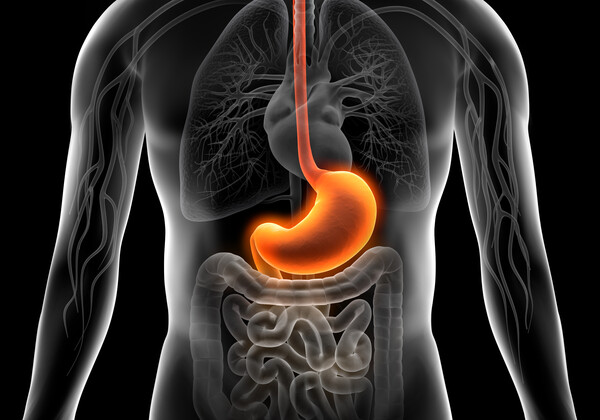As the Claudin 18.2 protein, also called CLDN18.2, emerges as a new target for treating gastric cancer, Astellas' first CLDN18.2-targeted cancer drug, zolbetuximab, is in the final stage of its launch, drawing the industry’s attention.
However, the changing landscape of metastatic gastric cancer treatment and the rapid development of follow-on therapies make it unclear whether zolbetuximab will claim the "first in class" title in the market, according to industry insiders.

CLDN18.2 is a tight junction protein found in several types of cancer, including gastric cancer, and recent findings suggest that this target has significant potential in cancer therapy.
In particular, zolbetuximab has helped establish CLDN18.2 as a validated therapeutic target by demonstrating statistically significant improvements in progression-free survival and overall survival in patients with unresectable gastric cancer in two pivotal phase 3 clinical trials (SPOTLIGHT and GLOW studies).
In the SPOTLIGHT study, zolbetuximab combined with mFOLFOX6 chemotherapy reduced the risk of disease progression or death by 25 percent compared to chemotherapy alone and reduced the risk of death by 25 percent.
The GLOW study also showed similar results when zolbetuximab was used in combination with CAPOX chemotherapy. In this study, median progression-free survival (mPFS) in the zolbetuximab arm was 8.21 months, compared to 6.8 months in the placebo arm, and median overall survival (mOS) was 14.39 months, compared to 12.16 months in the placebo arm.
These benefits were consistent across most subgroups, confirming that zolbetuximab successfully targets CLDN18.2, making it an emerging alternative for treating unresectable gastric cancer.
Based on these findings, zolbetuximab is under review for approval in the U.S., China, and Japan. It is also preparing to get approval in Korea next year.
However, recent changes in gastric cancer treatment brought about by immuno-oncology drugs are likely to hurt zolbetuximab's marketability.
While zolbetuximab completed the phase 3 clinical trial and is preparing for approval, anti-PD-1 immuno-oncology drugs have become the backbone of first-line treatment for unresectable gastric cancer. The combination of immuno-oncology and chemotherapy has become the standard of care for patients with or without HER2 expression.
For CLDN18.2-positive patients, who account for about 30 percent of HER2-negative patients, there are new targeted options. Still, patients must choose between immuno-oncology and zolbetuximab as a partner to conventional chemotherapy, for now.
Experts believe that zolbetuximab will most likely be used in a triple combination (immuno-oncology + chemotherapy + zolbetuximab) in HER2-negative, CLDN18.2-positive patients in the future.
Moreover, as the value of CLDN18.2 as an anticancer target has been recognized, the development of antibody-drug conjugates (ADCs) that go beyond monoclonal antibodies like zolbetuximab has been rapidly progressing, closely following zolbetuximab.
A case in point is CMG901, which AstraZeneca acquired from Chinese pharmaceutical company KYM Biosciences in February last year. CMG901 is an ADC targeting CLDN18.2 and is currently in a phase 1 clinical trial in patients with unresectable gastric cancer.
CMG901 demonstrated significant response rates and encouraging survival improvements in the phase 1 trial, leading to its inclusion in the American Society of Clinical Oncology (ASCO) Plenary Series late last year. In addition, CMG901 was granted fast-track designation by the U.S. Food and Drug Administration (FDA) in April 2022.
However, CMG901 and zolbetuximab are targeting different markets in the treatment of gastric cancer. While zolbetuximab is used in combination with chemotherapy in the first-line treatment of unresectable gastric cancer, CMG901 is being developed as a monotherapy in patients who have failed prior treatment.
ATG-022, a CLDN18.2-targeting ADC developed by Chinese pharmaceutical company Antengene, recently initiated a dose-escalation trial in China and Australia in the phase 1/2 CLINCH study.
The trial is designed to determine the maximum tolerated dose (MTD) and recommended phase 2 dose (RP2D) as monotherapy in patients with previously untreated advanced gastric and solid tumors.
ATG-022 also generated promising preliminary clinical results in response rates in a previous study. In May last year, the U.S. FDA granted its orphan drug designation for treating gastric and pancreatic cancers.
Expectations that ADCs containing cytotoxic anticancer agents, such as CMG901 and ATG-022, will show better therapeutic outcomes than traditional monoclonal antibodies have market insiders paying attention to how their clinical trial results and market access will impact the competitive landscape in gastric cancer treatment.
Related articles
- Sex disparities unveiled in study on Epstein-Barr virus gastric cancer survival
- Plant-based hemostatic powder shows promise in treating gastrointestinal bleeding
- [Column] Foods that are really bad for your stomach
- ‘If drugs can’t control your GERD, consider anti-reflux surgery’
- [Contribution] What’s the appropriate time between diagnosis and surgery of stomach cancer?

